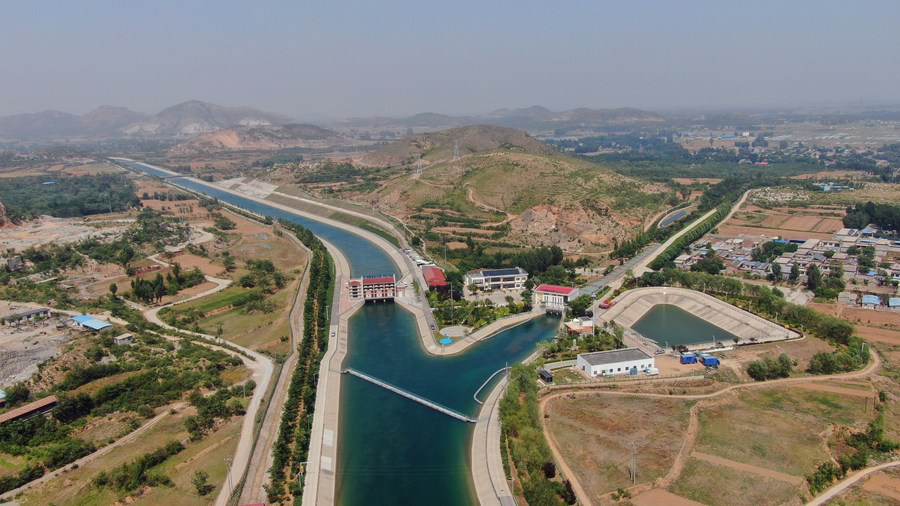Published: February 15,2023
By Staff writer

Aerial photo taken on May 25, 2021 shows the Xiheishan hub on the middle route of China’s South-to-North Water Diversion Project. (Xinhua/Liu Shiping)
China still a developing country has reached a stage where it has harnessed and conquered nature for human advancement. In most developing countries especially in the global south, millions of people still depend on nature for example while practicing agriculture. In Africa particularly, farmers periodically count losses when their crops fail due to long droughts and failure of rain due to climate change. Thousands of domestic animals die annually due to lack of pasture and water. People also die due to hunger.
According to world food programme, over 22 million people in Kenya, Ethiopia and Somalia, are acutely food insecure and 5.1 million children are acutely malnourished. In 2023, WFP is urgently calling for USD 2.4 billion to help avert a major humanitarian crisis in the Horn of Africa and support 8.8 million people affected by the drought with regular life-saving relief.
Going back to the China story of harnessing nature, one can draw out one simple example where China’s South-to-North Water Diversion Project has enabled channeling over 60 billion cubic meters of water from major rivers in the south to the drought-prone north of the country, benefiting more than 150 million people.
China’s South-to-North Water Diversion Project has three routes. The middle route, the most prominent one, starts at the Danjiangkou Reservoir in central China’s Hubei Province and runs across Henan and Hebei before reaching Beijing and Tianjin. It began supplying water in December 2014.
The eastern route began operations in November 2013, transferring water from east China’s Jiangsu Province to areas including Tianjin and Shandong. The western route is in the planning stage and is yet to be built.China will push forward the follow-up construction of the water diversion project in 2023 and accelerate the building of the national water network, according to Jiang Xuguang, chairman of the group.
Africa needs to borrow a leaf from such kind of projects that turn arid areas into water lands that support agriculture, livestock farming as well as providing water for human consumption. With the threats of climate change are real, relying on nature is a dangerous option.
 Africa -China Review Africa -China Cooperation and Transformation
Africa -China Review Africa -China Cooperation and Transformation
